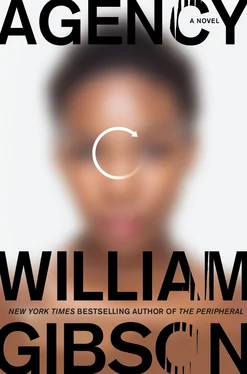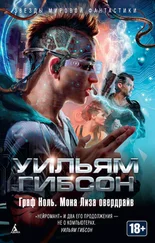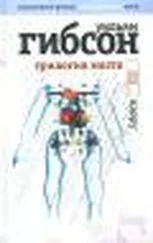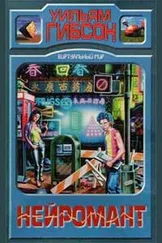Eyes open, Netherton joined her.
An approaching figure crossed a patch of lamplit pavement.
“Go down and bring her up,” said Rainey.
“It’s not Flynne,” he said.
“Don’t make her have to ring.”
Starting to remove the controller, he thought better of it. The peri would be on its manufacturer’s AI. No one in it to see him, let alone think his headgear ridiculous.
As he descended the two flights Rainey insisted were healthier than the lift, he remembered having first seen it, before it had become Flynne’s, in the lurid blue dusk of an upper parlor of what Lev archly termed his father’s house of love, a monstrosity of erotic kitsch in Kensington Gore. It had noted him, he recalled, with a benign disinterest, as though he’d attracted the attention, such as it was, of a giant semisentient orchid.
It had, Lev had explained, no digestive tract, hence neither ate nor defecated, so required twelve-hourly infusions of a concentrated nutrient as well as regular hydration.
It waited now, he saw, beyond the foyer’s steel-mullioned door, with that same expression, brown eyes regarding him from beneath brown hair. Someone, Lowbeer perhaps, had told him, after he’d first encountered it, that it was ten years old, though appearing to be in its early thirties. It seemed no older now.
“Come in,” he said, the door opening in response to his invitation. “This way,” indicating the lift, which opened at their approach.
It wore black trainers with bright white soles, loose gray trousers cinched at the ankles, and a black kimono-cut jacket. And looked, in the confusing way of situations like this, like Flynne. Not that it actually bore any more than a passing resemblance to her, but that he was so accustomed now to experiencing it as her physical avatar.
Tell me what to do,” Verity said to Ash.
The drone stood facing her. The conductive gel Virgil had spread across her forehead felt cool. She worried about getting it in her eyes.
“The unit in London,” Ash said, from the drone’s speaker, “is exponentially more sophisticated than this one.”
Several cars honked simultaneously on Geary. Verity wondered if Ash could hear them. “How can I operate that, if Wilf can barely walk in this one?”
“Interface transparency,” Ash said. “You needn’t learn to control it. If anything, you’ll need to learn not to try to.”
“Where is it, there?”
“Wilf and Rainey’s flat, Fitzrovia. It’s only just arrived.”
“What happens here, when I’m there?”
“Nothing. You’ll be neurologically elsewhere.”
“Why’s the one in London so next-level?”
“You’re about to find out,” said Ash, “if you’ll close your eyes.”
Verity did.
“There’s something you might watch for,” Ash said, “as we activate the controller. I assume you’re experiencing entoptics now. A normal phosphene display, that is. Possibly construals.”
“Possibly what?”
“Construals. The left brain attempting to impose recognizable attributes on randomness. Faces in clouds, for example. The peripheral’s entoptics differ from yours, as would anyone’s. Knowing that, you may be able to visually distinguish the threshold of neurological transition as entoptic difference, the arrival of a different phosphene display. But please keep your eyes closed until Wilf asks you to open them. Probably no more than ten seconds.”
“Why?”
“Transitioning with your eyes open, or opening them immediately after transitioning, induces nausea. When you do open them, try to move slowly at first. There may be dysmorphia as well, but it’s relatively transient.”
“Dysmorphia?” Eyes still closed, wondering if she were beginning to experience construals.
“The specific symptoms mimic postural hypotension,” Rainey said. “Dizziness on standing, possibility of fainting.”
“Are these alpha builds? The drone, the controller, whatever Wilf has in London?”
“No,” Ash said. “Ready?”
“Do it,” Verity said, as horns sounded again on Geary.
A diagonal edge of differently textured blood-dark swept smoothly past, behind her lids, right to left, horns simultaneously lost to the silence of a different room.
“Keep them closed,” said Wilf, startlingly near.
“Okay,” she said, simultaneously realizing that this wasn’t her voice.
“It’s like borrowing another body,” Rainey said, from another direction. “You’re accessing its full sensorium.”
“Open them now,” Wilf said.
She did, into the brighter, warmer light of a smaller room, its walls a pale but decidedly non-lilac gray, reminding her of the frames of the Tulpagenics glasses.
“Hello,” said a dark-haired man she took to be roughly her age, in a silly-looking silvery headpiece. He was peering at her, as if over glasses he wasn’t wearing. Having, she guessed from his position, just gotten up from beside her, from the couch on which she now sat, which was smaller than the one in the suite at the Clift, and brown.
“Wilf?” Which came out sounding, in this voice, like an interrogative yip.
“Yes,” he said, smiling unconvincingly, “and this is Rainey.”
A woman, familiar from the clip he’d shown her in the van, stepped from behind the couch. “Not everyone has the dysmorphia,” the woman said, “and for some reason they seem to exaggerate the likelihood of nausea. I’ve never had either. But I’ve heard they both tend to be most noticeable when you first stand up.”
Which Verity did then, her head instantly swimming. She quickly sat, hands that weren’t her own gripping someone else’s gray-trousered knees.
“Thereby proving me wrong,” Rainey said. “I’d offer you water, but she mentioned to me that she was hydrated.”
Verity spread the fingers of the hands. The nails, better cared for than her own had ever been, were cut short, rounded, polished. “Who did?”
“Your peripheral,” Wilf said. “It runs on Hermès AI, when it’s without a user.”
“Whose AI?” Verity looked up at him.
“The manufacturer’s,” said Ash, her unexpected voice causing Verity to glance around the room, then into what she could see of a small adjacent kitchen, equally bright. A feed appeared.
“You’re Ash?” Verity asked the woman in the feed, the wall behind her as white as her face, alive with animated drawings of what might be gazelles. Her eyes were large and gray.
“I am.”
“How am I getting this feed?”
“By phone,” Wilf said. “The peri has one built in.”
“Perry?” Verity asked.
“Peripheral,” said Wilf. “A quasibiological telepresence avatar.”
Verity looked around the room. Gray walls, pale wood floor, Scandinavian-looking furniture. “Trying this again,” she said, and got to her feet, slowly this time, feeling only slight dizziness.
“Hello, Verity,” Rainey said, stepping forward and taking her hand.
“I can feel your hand,” Verity said, surprised.
“This is new for me too,” Rainey said, releasing Verity’s hand, “but not in the same way. This peri’s only used by a friend of ours, ordinarily, who doesn’t live in London either. It isn’t modeled after her, but since I’ve mainly gotten to know her here, and this is the way we most frequently visit, I keep feeling like you’re her.”
“Where’s Thomas?” Verity asked.
“In the nursery, with the nanny.”
“I’ll be available if you need me,” Ash said. The feed closed.
Verity looked at Rainey. “How new is this technology?”
“Not very. I’m not sure, exactly.”
“Stets would have known about it, and told me. Unless this is a prototype from the past year.”
Читать дальше








